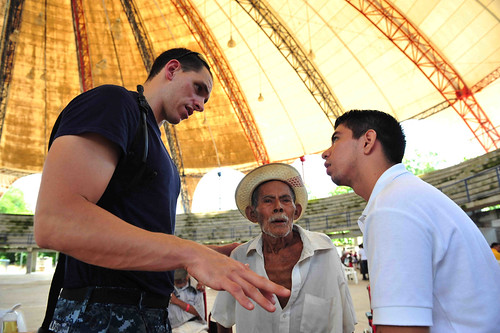There are several levels of translation and interpretation as well as different rules and norms. There is everything from the formal certifications that involve taking tests in order to receive legally recognized certification to helping a Spanish speaker in the grocery store, but they all require certain etiquette.
Legal and Medical Translation
Legal and medical situations are the trickiest. These situations require you to be legally certified to translate for these situations. If you don’t have these certifications, you are better off staying out of it. If it’s an emergency, you should let the parties involved know right away that you do not have certification, but are willing to help with basic translation if needed.
Professional Translation and Interpretation
When it comes to professional translation and interpretation, the rules are generally set by who you are working for. If the arrangement is extremely formal, you will most likely be expected to translate exact meanings. That means, if someone says “I think you’re a complete idiot.” You are obligated to repeat that in Spanish, no matter what.
 There are, of course, less strict situations. When I worked as an interpreter for a church and school, I was allowed a lot more freedom. I could paraphrase when necessary and I acted more as an in between, meaning I did not repeat things in the first person, I relayed the information as a third party. I also was able to work with my boss to rephrase things that I felt needed rephrasing. This came in handy when dealing with parents, as sometimes the people I was interpreting for were a little harsh and/or not sensitive to the cultural differences.
There are, of course, less strict situations. When I worked as an interpreter for a church and school, I was allowed a lot more freedom. I could paraphrase when necessary and I acted more as an in between, meaning I did not repeat things in the first person, I relayed the information as a third party. I also was able to work with my boss to rephrase things that I felt needed rephrasing. This came in handy when dealing with parents, as sometimes the people I was interpreting for were a little harsh and/or not sensitive to the cultural differences.
As common courtesy, I discussed my alterations with the original speaker whenever possible to make sure they agreed with what I planned to convey. Since I was also a teacher and sometimes had something to add to the conversation, I would ask permission to say something. It would be improper for me to add anything without asking first.
Casual Interpretation
You’d think casual interpretation would not require any rules, but it does. When I was living in an area that had a large Mexican population, I would run into Spanish speakers all the time. Sometimes I would notice them speaking to someone in broken English. Now, if you are a super helpful person, your first instinct may be to run up and assist them by playing interpreter for them, but you shouldn’t do this right away. How annoyed would you be if you were in a Spanish speaking country and every time you opened your mouth someone ran up and started speaking to you in English. Allow people to try and, more importantly, keep their dignity.
However, I did notice people struggling sometimes, especially when filling out forms that were all in English. In these situations, I would approach the person and politely ask them if they need any help.
Translation and interpretation has etiquette rules just like interactions in your native language, so be considerate! Do you have any other etiquette suggestions?
Check out these other articles about the Spanish Language.
Featured photo credit: Ohio native/Sailor speaks to a patient through a translator during Continuing Promise 2011 by Official U.S. Navy Imagery via flickr